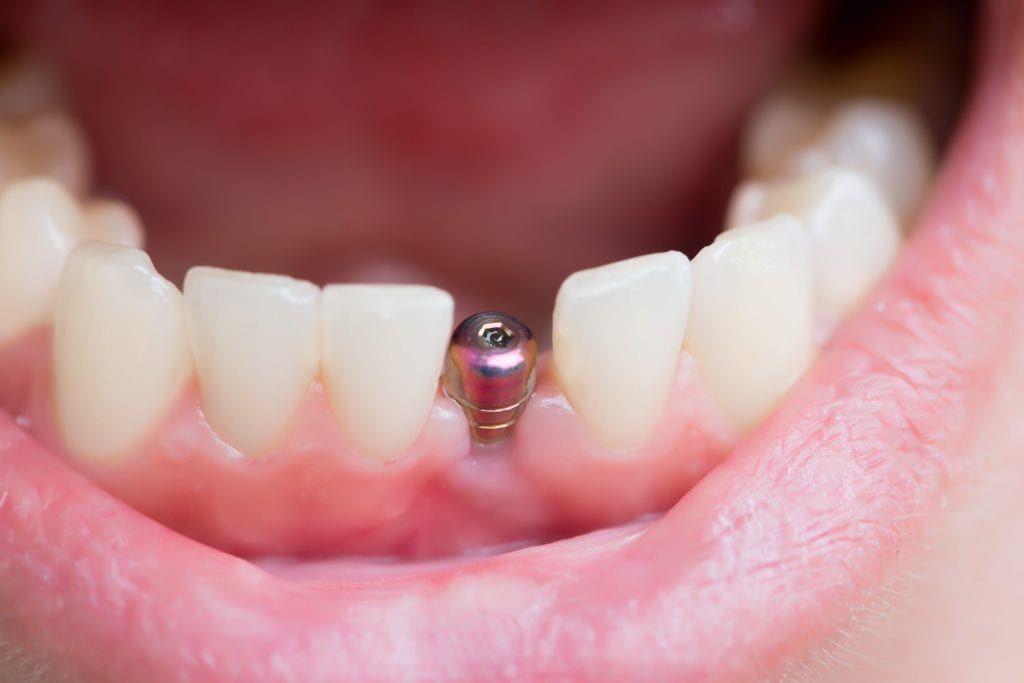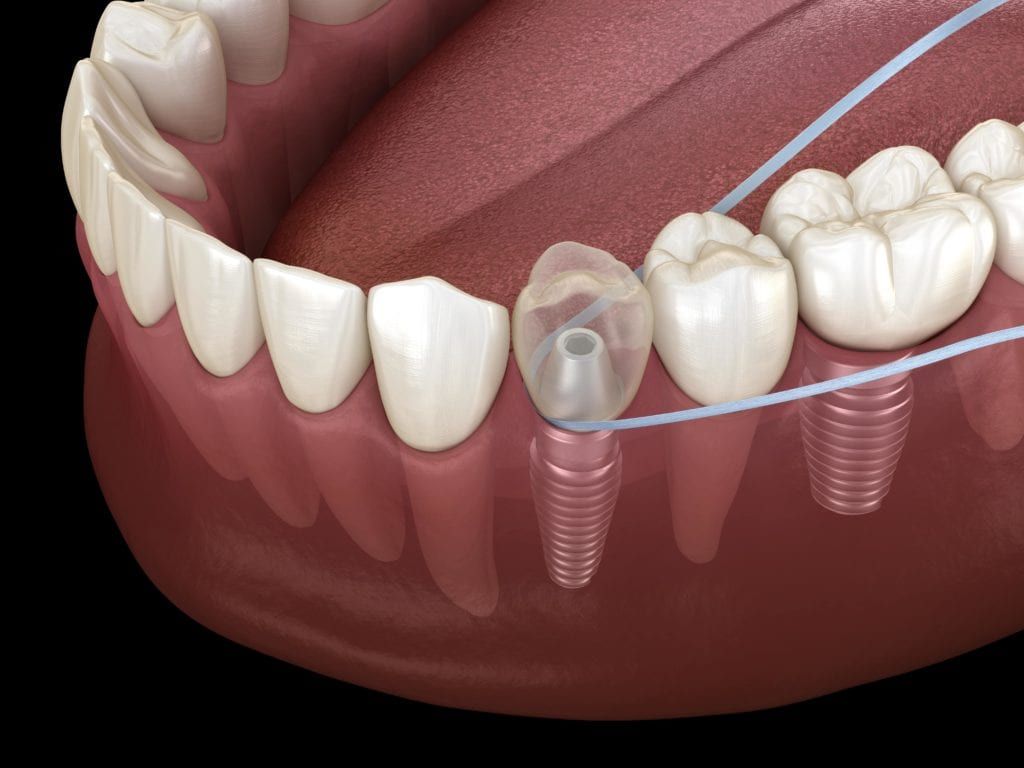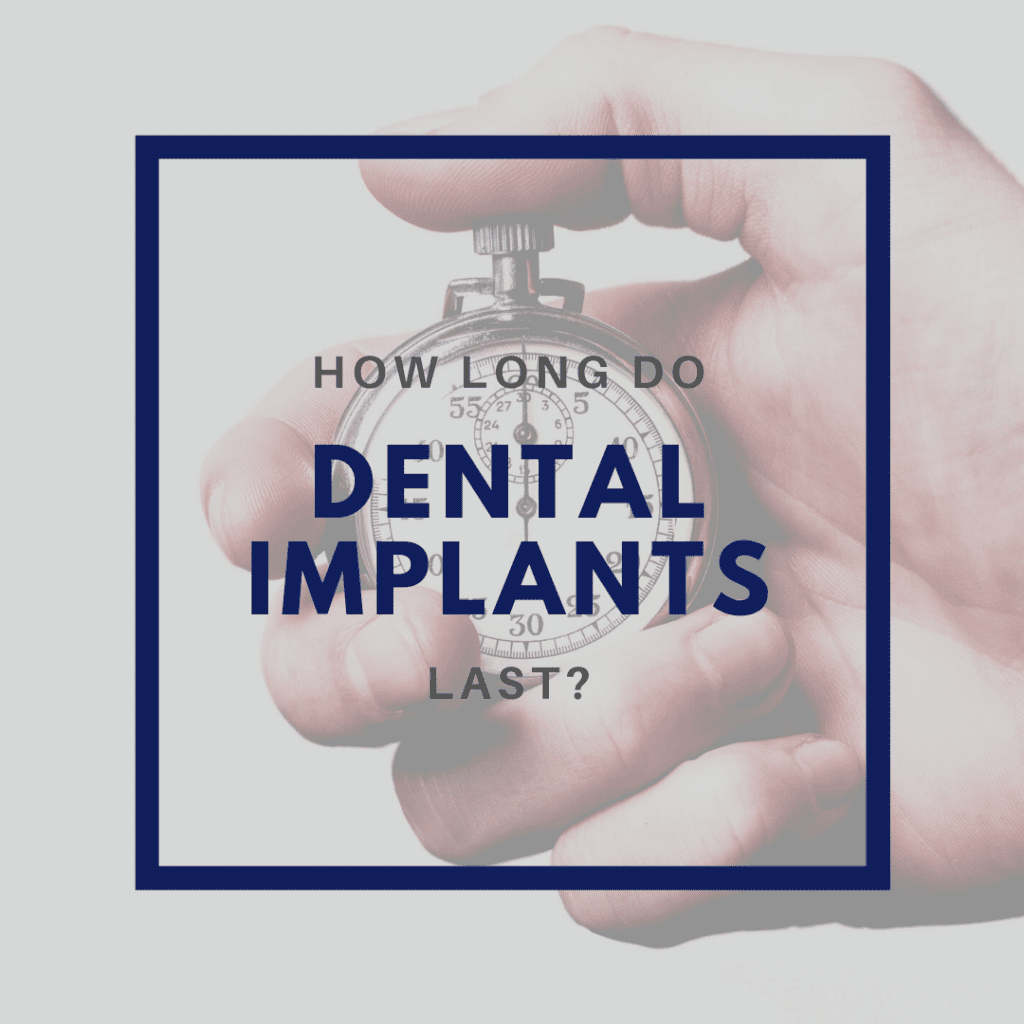With so many different restorative treatments available to replace missing teeth, it can be hard to know which treatment is right for you. Often times when deciding on a treatment option, many people want to know how long it will last and if they will need to have it replaced at some point in the future. This is especially the case for treatments that may be more invasive than others.
If you are considering having a smile restoration treatment to replace missing teeth, one common option you may have come across are dental implants. Compared to other restorative treatments, dental implants require a slightly more invasive procedure for their initial placement. This causes many people to question how long dental implants last and whether the procedure will need to be repeated in the future.

The good news is dental implants are extremely long-lasting and generally don’t require replacements often, if at all. On average, dental implants can last about 20+ years. Once they have been placed, they fuse with the surrounding bone and are rarely replaced.
Dental implants are usually only removed if the implant fails, and in most cases this happens soon after placement if it’s going to happen. Since dental implants have a 98% success rate, dental implant failure is rare. When it does happen, it is usually due to a lack of patient compliance to the post-operative guidelines. This is why it is so important to follow any guidelines your dentist provides you with.
After a dental implant is placed, it will need to fuse with the surrounding bone in order to be successful. This process is called osseointegration and it can take anywhere from 3-6 months, sometimes longer depending on the individual. During this crucial period, it is necessary to refrain from exerting too much force on the implant to prevent it from shifting or healing incorrectly. Once the implant has fused, the risk of failure drops significantly.
Since the implant is fused to the bone, it will remain in place for several years. However, the dental prosthetic attached to the implant will likely need to be replaced at some point. Dental prosthetics used with implants such as crowns, bridges, and dentures usually need replacement after 10-15 years.
Even though the prosthetic will need replacement, this does not mean that the implant needs replacement. This is because the prosthetic is attached to the implant with a connector piece called an abutment. Therefore, the prosthetic will be removed from the abutment, leaving the implant intact. Then a new prosthetic will be attached.

It is important to realize, however, that your dental implant will still need to be maintained through good oral hygiene. If the surrounding teeth are affected by tooth decay, this can jeopardize the stability of the implant. Therefore, brushing twice a day and daily flossing around the implant is important to prevent both tooth decay and gum disease around the implant site. Additionally, regular dental exams and cleanings every six months will allow your dentist to monitor the condition of your implant.
Overall, dental implants are the longest-lasting tooth replacement method with an average lifespan of 20+ years. However, their longevity is a result of patient compliance throughout the entire recovery period, as well as continued oral hygiene. Even though the prosthetic attached to the implant will likely need to be replaced, the implant itself should remain in place.

Dr. Sachdeva Pushpa is a Nairobi dentist who is constantly upgrading her skills by attending hands-on courses internationally. This allows her to provide her patients with the latest dental techniques and technology. In addition to restorative dental treatments, she works to improve the surrounding soft tissues through lip augmentation, reduction of peri-oral lines, narrowing of square jaws, Fillers and Facial Thread lifting. She also uses Botox to reduce the occurrence of Bruxism and to reduce “gummy smiles”.




